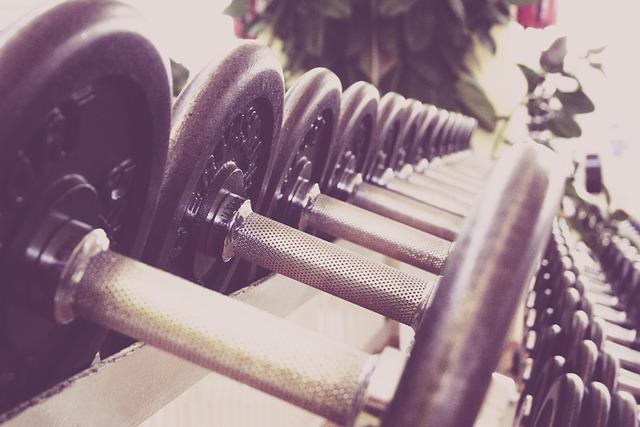
Weightlifting is a popular and effective form of exercise that can help you build muscle, increase strength, and improve overall fitness. However, in order to maximize your results from weightlifting, it is important to fuel your workouts with the right diet. In this ultimate guide, we will cover all the essential components of a weightlifting diet to help you reach your fitness goals.
Protein
Protein is essential for muscle growth and repair, making it a key component of any weightlifting diet. When you lift weights, you are breaking down muscle fibers, and protein is needed to rebuild and repair these fibers. Aim to consume 1-1.5 grams of protein per pound of bodyweight per day to support muscle growth. Good sources of protein include lean meats, poultry, fish, eggs, dairy products, and plant-based sources such as tofu, tempeh, and legumes.
Carbohydrates
Carbohydrates are the body’s primary source of energy, making them an important fuel source for weightlifting workouts. Aim to consume complex carbohydrates such as whole grains, fruits, vegetables, and legumes, as these provide sustained energy and help regulate blood sugar levels. Before a workout, aim to consume a meal or snack that includes both protein and carbohydrates to fuel your muscles and provide energy for your workout.
Fats
While fats have gotten a bad rap in the past, they are actually an essential part of a balanced diet, especially for weightlifters. Fats provide a concentrated source of energy, help regulate hormone production, and support overall health. Aim to include healthy fats such as avocados, nuts, seeds, olive oil, and fatty fish in your diet. Avoid trans fats and limit saturated fats, as these can have negative effects on health.
Hydration
Proper hydration is essential for optimal performance during weightlifting workouts. Dehydration can lead to decreased performance, muscle cramps, and fatigue. Aim to drink at least 8-10 glasses of water per day, and more if you are sweating heavily during your workouts. Consider adding electrolytes to your water if you are sweating excessively to help replace lost minerals and support hydration.
Pre-Workout Nutrition
Before a weightlifting workout, it is important to fuel your body with the right nutrients to support energy levels, muscle growth, and overall performance. Aim to consume a meal or snack that includes protein, carbohydrates, and a small amount of healthy fats. Timing is also important – aim to eat a meal or snack containing protein and carbohydrates 1-2 hours before your workout to allow time for digestion and absorption.
Post-Workout Nutrition
After a weightlifting workout, your muscles are in need of nutrients to support recovery and repair. Aim to consume a meal or snack that includes protein and carbohydrates within 30-60 minutes after your workout. This window of time is known as the “anabolic window” and is when your muscles are most receptive to nutrients for repair and growth. Good post-workout options include a protein shake, a chicken and rice bowl, or Greek yogurt with fruit.
Supplements
While a well-rounded diet should provide all the nutrients you need for weightlifting, some athletes may benefit from using supplements to support their workouts. Common supplements for weightlifters include protein powder, creatine, branched-chain amino acids (BCAAs), and pre-workout supplements. It is important to do your research and consult with a healthcare professional before starting any new supplements to ensure they are safe and effective for your individual needs.
Meal Planning
Planning your meals and snacks ahead of time can help you stay on track with your weightlifting diet and ensure you are getting the nutrients you need to support your workouts. Consider meal prepping on Sundays for the week ahead, and pack snacks to take with you to the gym to avoid unhealthy choices when hunger strikes. Aim to include a balance of protein, carbohydrates, and fats in each meal and snack to support your fitness goals.
Sample Meal Plan
Here is a sample meal plan to give you an idea of how to structure your meals for optimal performance during weightlifting workouts:
Breakfast: Greek yogurt with berries and almonds
Snack: Apple with almond butter
Lunch: Grilled chicken with quinoa and roasted vegetables
Snack: Protein shake with banana and almond milk
Dinner: Salmon with sweet potato and steamed broccoli
Snack: Cottage cheese with pineapple and walnuts
Remember to adjust portion sizes and meal timing based on your individual needs and schedule. Experiment with different foods and meal timings to find what works best for you and supports your workouts.
In conclusion, fueling your workouts with the right diet is essential for maximizing your results from weightlifting. Aim to include a balance of protein, carbohydrates, and fats in your meals and snacks to support muscle growth, energy levels, and overall performance. Stay hydrated, plan your meals ahead of time, and consider using supplements to support your workouts if needed. By following this ultimate guide to fueling your workouts with the right diet, you can reach your fitness goals and see the results you desire from your weightlifting workouts.

















